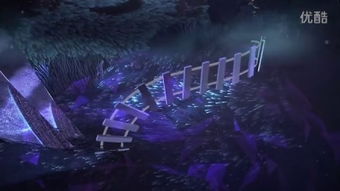Content:
Fishing is an ancient pastime that has been enjoyed by countless individuals around the world. Whether you're a seasoned angler or a beginner looking to cast your line for the first time, learning the art of fishing in a river can be both a rewarding and relaxing experience. Here are some essential tips and techniques to help you master the skill of fishing in a river.

Choose the Right Gear
Before you step into the river, it's crucial to have the right equipment. Here's a list of essential gear you'll need:
- Rod and Reel: The type of rod and reel you choose will depend on the type of fish you're targeting. For rivers, a medium-heavy rod with a spinning reel is often recommended.
- Line: Use a monofilament line that's strong enough to handle the fish you're after but not too heavy, as it can spook the fish.
- Hooks: Depending on the fish, you might need a variety of hook sizes and styles. Small hooks are generally better for river fishing as they are less likely to snag on rocks.
- Bait or Lures: Choose bait or lures that are known to attract the fish in the river you're fishing in. Live bait can be effective, but artificial lures can also be very successful.
- Tackle Box: Keep essential tools like needle-nose pliers, a knife, and a fishing net handy for handling fish and untangling lines.
Learn the Basics of Casting
Casting is a fundamental skill in fishing. Here's how to get started:
- Hold the Rod: Grip the rod with your dominant hand and place your other hand near the reel. The rod should be at a 45-degree angle to the ground.
- Backcast: Swing the rod back over your head, allowing the line to unravel. Keep the line tight to prevent it from tangling.
- Forward Cast: Bring the rod forward and release the line. The goal is to cast the line with a smooth, controlled motion.
- Practice: Cast in an open area to get a feel for the motion and adjust your technique as needed.
Understand River Dynamics
Rivers are dynamic environments, and understanding their flow can help you fish more effectively:
- Current: Pay attention to the current's direction and speed. Fish often hang out in areas where the current is slower, such as behind rocks or logs.
- Structure: Look for natural structures like rocks, logs, and vegetation that fish might use for cover or to ambush prey.
- Depth: Different fish species prefer different depths. Trolling or casting near the bottom can be effective for bottom-dwelling fish, while casting above the water can attract surface feeders.
Learn to Read the Water
Reading the water is a skill that comes with practice. Here's how to start:
- Observe the Surface: Look for signs of fish activity, such as bubbles, ripples, or fish jumping out of the water.
- Listen: The sound of water can give you clues about the river's structure and flow. You might hear the current hitting rocks or the sound of fish moving around.
- Smell: Fish can be sensitive to smells, so be mindful of any scents you might be carrying that could deter them.
Patience is Key
Fishing is a waiting game. Here are some tips to keep you focused and successful:
- Stay Still: Moving around too much can spook fish. Once you find a good spot, try to stay put.
- Adjust Your Technique: If you're not getting bites, try changing your bait, lure, or location.
- Be Patient: Fish can be unpredictable. Don't get discouraged if you don't catch anything right away.
Respect the Environment
Always practice ethical fishing by following local regulations and respecting the natural environment. This includes:
- Keep the Area Clean: Dispose of trash properly and avoid leaving any litter behind.
- Handle Fish Responsibly: If you're releasing fish, make sure to do so gently and carefully to minimize stress.
- Be Aware of Safety: Always fish with a buddy and be aware of your surroundings, especially near fast-moving water.
In conclusion, learning to fish in a river can be a delightful experience with the right approach. By choosing the right gear, mastering casting techniques, understanding river dynamics, and being patient, you'll be well on your way to becoming a skilled river angler. Remember to respect the environment and enjoy the peacefulness of the water as you pursue your fishing adventures. Happy fishing!












